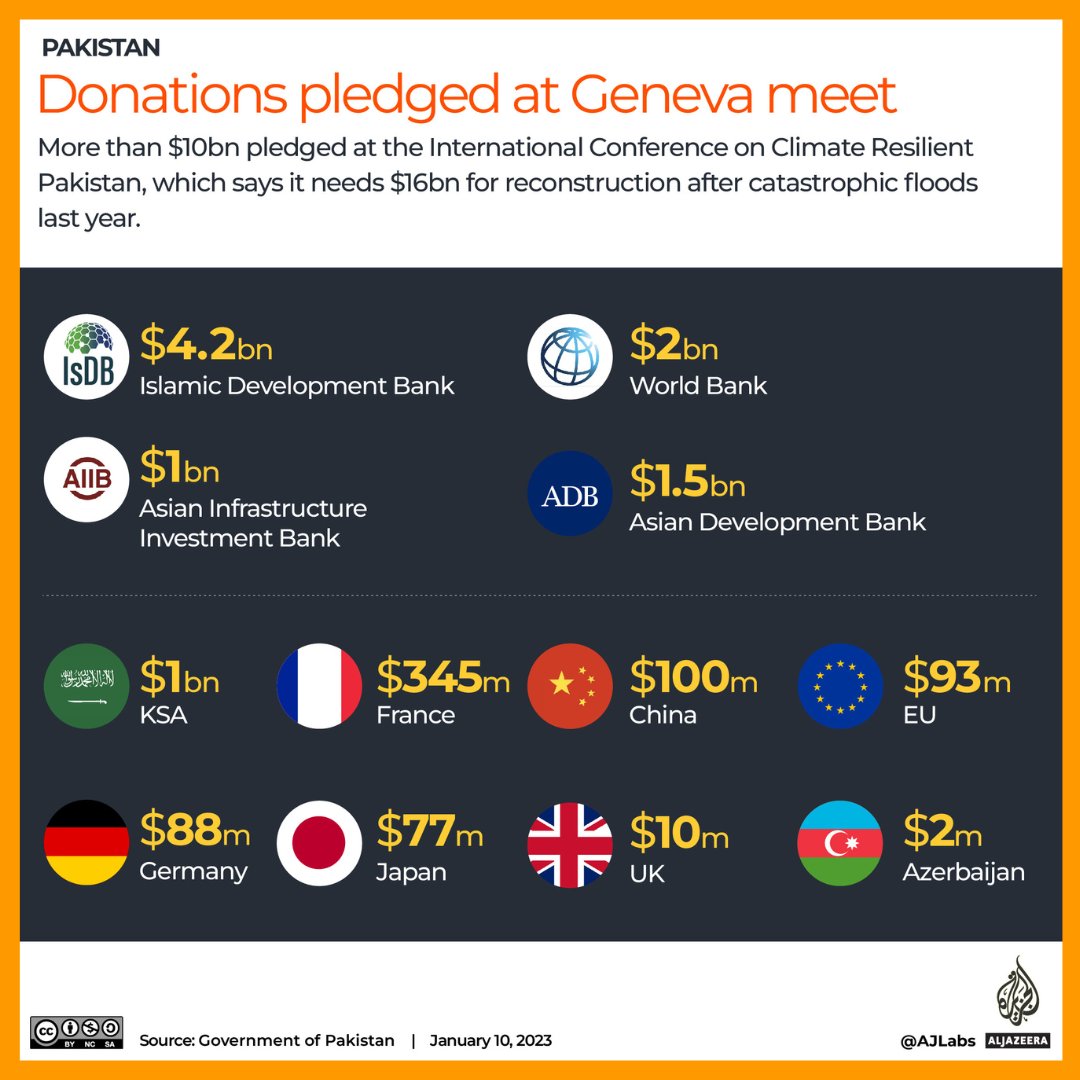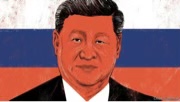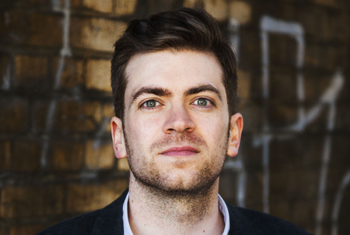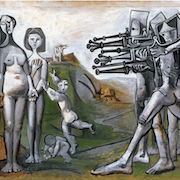(Thread IKs:
fart simpson)
|
i say swears online posted:yeah from what i've seen it was pretty popular The "african" market is both too wide AND too shallow to see any returns on investment and I don't think the occasional wakanda shaped bone is going to do much except make a few useful idiots to raise a stink over ever increasing chinese investments into different african countries.
|
|
|
|

|
| # ? May 26, 2024 07:22 |
|
Tankbuster posted:The "african" market is both too wide AND too shallow to see any returns on investment and I don't think the occasional wakanda shaped bone is going to do much except make a few useful idiots to raise a stink over ever increasing chinese investments into different african countries. Also they've got a pretty solid film industry of their own
|
|
|
|
well they are all different countries so yes. Like in South Africa you have as pro western a regular population as it gets, but the ANC to their credit didn't fall head over heels into the rest of the Free(tm) world into complaining about Russia and destroying long standing relations with it.
|
|
|
|
the socialist alternative take on Infinite COVID lol https://www.socialistalternative.org/2023/01/04/the-collapse-of-xi-jinpings-zero-covid-policy/ quote:The Collapse of Xi Jinping’s Zero COVID Policy 
|
|
|
|
Antonymous posted:
the #1 funny thing about xinjiang will always be americans feeling bad about prisoners in china lol
|
|
|
|
Homeless Friend posted:the #1 funny thing about xinjiang will always be americans feeling bad about prisoners the #2 is that it’s literally the only place on earth the west opposes discriminating against a Muslim minority.
|
|
|
|
British cops in some districts are using food banks, the fundamentals of the economy are strong
|
|
|
|
Best Friends posted:the #2 is that it’s literally the only place on earth the west opposes discriminating against a Muslim minority. They also oppose to it in Myanmar. (But not in India.)
|
|
|
|
Tankbuster posted:well they are all different countries so yes. Like in South Africa you have as pro western a regular population as it gets, but the ANC to their credit didn't fall head over heels into the rest of the Free(tm) world into complaining about Russia and destroying long standing relations with it. nollywood was pretty insular when i was there. lots of historical dramas and moral cautionary tales there was a nigerian Crash this year called Country Hard where a bunch of standalone stories intersect more recent movies are romantic comedies and comedy-of-error movies where something simple snowballs into a disaster i say swears online has issued a correction as of 02:12 on Jan 11, 2023 |
|
|
|
uganda has a fun low-budget action films industry. https://en.wikipedia.org/wiki/Bad_Black
|
|
|
|
tristeham posted:uganda has a fun low-budget action films industry. lol this version has commentary, give this timestamp'd section thirty seconds https://www.youtube.com/watch?v=Sa5kPuDtosQ&t=440s
|
|
|
|
genericnick posted:Fun thing I just remembered: lmao, post that in the Epstein thread if you haven't already
|
|
|
|
i say swears online posted:lol this version has commentary, give this timestamp'd section thirty seconds lol if i start i'll watch the whole thing again
|
|
|
|
https://twitter.com/BenjaminNorton/status/1612992302309335041
|
|
|
|
i say swears online posted:lol this version has commentary, give this timestamp'd section thirty seconds Yea that's a common feature of Wakaliwood films. Be sure to check out Who Killed Captain Alex?
|
|
|
|
"the era of trusting communist China is over,” McCarthy said Tuesday on the House floor." Read that in a vacuum and guess the decade
|
|
|
|
This is one of the few times I'd like to be a Congress guy so I could make some fiery speech about the legacy of the opium wars, even though I know it wouldn't do anything
|
|
|
i say swears online posted:lol this version has commentary, give this timestamp'd section thirty seconds This is loving incredible, thank you kind poster
|
|
|
|
|
somebody asked for a summary of the ebbs and flows of china's covid policy and i think this does a pretty good job of it. basically comports with my own experience https://twitter.com/nise_yoshimi/status/1611638886899261440
|
|
|
|
R. Guyovich posted:somebody asked for a summary of the ebbs and flows of china's covid policy and i think this does a pretty good job of it. basically comports with my own experience good read if your eyes glaze over at this guy talking about what him and all his friends were doing for 3 years reading the conclusion by itself is still good quote:By this metric of ours, China looks to have hosed up bad. But did the Chinese state and people see it this way? The narrative that Covid involved some kind of attempt at lockdown/mitigation then inevitably when this didn’t work had to bear a large number of deaths, the ‘exit wave’, as the pandemic ended without a victory over the virus – this framing was not something that happened naturally, but was a result of pandemic failures in the west that demanded we get over it, because we could not defeat it, then thusly meant the whole world was obliged to get over it as well, because it was and remains our drat planet. This is the ideology of neoliberal capitalism – you simply get over things, whether market collapse, pandemic, or huge and dreadful economic and social crises, because the gutting of all arms of the state except that of repression and the draining of all political will except for tepid games of management means that your government and society no longer posses any capacity for dealing with problems in any real sense. The Covid-19 pandemic was a test for all of mankind, and we failed – but to be more particular capitalism failed, to either contain the pandemic or look out for its victims. And in our intertwined world devoid of alternatives it was so decided that this meant we all had to fail.
|
|
|
|
that was very good
|
|
|
|
R. Guyovich posted:somebody asked for a summary of the ebbs and flows of china's covid policy and i think this does a pretty good job of it. basically comports with my own experience more or less lines up with my own experience too, although the author seems more negative about the whole thing than i was
|
|
|
|
mawarannahr posted:the socialist alternative take on Infinite COVID lol R. Guyovich posted:somebody asked for a summary of the ebbs and flows of china's covid policy and i think this does a pretty good job of it. basically comports with my own experience
|
|
|
|
R. Guyovich posted:somebody asked for a summary of the ebbs and flows of china's covid policy and i think this does a pretty good job of it. basically comports with my own experience Good read. I agree with their conclusion on how COVID Zero ultimately fell apart quote:Zero-Covid state’s initial successes and didn’t wane until deep into the 2022 Omicron wave, and by the fierce arguments unfolding in China now still has not entirely died off. In 2021 especially, before things soured, many people were proud of Zero-Covid, and remain so. Xi’s Party has always been caught in an awkward place between the alienating, mistrustful and distant politics of its predecessors and its attempted recognition of the importance of political support and public consensus, and Zero-Covid’s mixture of technocratic top-down management and its dependence, in the last resort, on co-operation between volunteers and citizens, reflects this. When that co-operation vanished in late 2022, with protests and riots facing the Big Whites instead of queues of accepting citizens, the policy became unworkable – or at least, it had been rendered unworkable except by brute force applied wholesale across the country, which would have accomplished nothing. Ironically it is this that has led to the end of Zero-Covid – the Chinese state’s unwillingness to use the naked force it is often accused of depending upon. The cost of this unwillingness to resort to violence will paradoxically be enormous, but then so would the cost of the violence itself.
|
|
|
|
https://twitter.com/Tarhuwa/status/1612976533764710401?s=20
|
|
|
|
i say swears online posted:yeah from what i've seen it was pretty popular what do african countries think of wolf warrior
|
|
|
|
ModernMajorGeneral posted:good read good read. feel the same about it from here in western australia, without the global racial geopolitics part of it. we had the same dickheads crowing about our 'hermit kingdom' finally opening up and facing the freedom virus.
|
|
|
|
 Lol Azerbaijan
|
|
|
|
one thing i've been thinking about a lot - especially when it comes to the global response to covid - is Fukuyama weird hegelianism. Fukuyama is a bad hegelian, who barely understood Kojčve, let alone Hegel, but certain aspects of his analysis are that are still quite interesting. In one of his early, non-End of History works he discusses globalization and the resulting liberalization and democratization of the world. as part of his horribly ideological mindset, he believes that an efficient society and economy can only be produced in an economically and politically liberal state. even in illiberal states with state-run economy citizens the world over will notice the clear superiority of those liberal states, internalize liberal beliefs, form a broad social movement with similarly liberalised subjects and eventually force their country to liberalise. this analysis is, of course, completely wrong and, if anything, western neoliberalism is less efficient, and more polarising than any potential alternative, but something still rings true. To a certain extent, though I am not sure why and how, subjects the world over are becoming more liberal. the production of the liberalised and atomised subject is a fait-accompli in the West, and can explain the completely ineffective response to COVID throughout the West, but even beyond the West subjects the world over are slowly beginning to hold the same beliefs, consider the world and themselves in the same way and stand in similar relations to the state and society. Fukuyama might be wrong in ascribing the cause to the complete superiority of liberalism, but whether the root cause is the digitalisation of the human experience through social-media and the itnernet, the alienation inherent in all labour relations (even in China!), the fundamental contradictions of capitalism, Bretton Woods and the imposition of the Washington Consensus through the WEF, World Bank and the IMF, the lizard people and Bildenbergers, the World-Spirit on horseback or a combination of all of the above, the processes in which the subject is produced is changing and slowly becoming more self-similar. though, unlike, Hegel, I fear that the universalisation of the subject will not lead to the realisation of Freedom and Spirit in the world
|
|
|
|
Red and Black posted:Good read. I agree with their conclusion on how COVID Zero ultimately fell apart Inspired, in large part, by this quote
|
|
|
|
I have been thinking, there should be a R0 value, not for virus , but for how much and how fast the neoliberal world order can infect a closed country into neolib-like state. The R0 value doubles if the country has extractable resource.
|
|
|
|
oscarthewilde posted:one thing i've been thinking about a lot - especially when it comes to the global response to covid - is Fukuyama weird hegelianism. Fukuyama is a bad hegelian, who barely understood Kojčve, let alone Hegel, but certain aspects of his analysis are that are still quite interesting. In one of his early, non-End of History works he discusses globalization and the resulting liberalization and democratization of the world. as part of his horribly ideological mindset, he believes that an efficient society and economy can only be produced in an economically and politically liberal state. even in illiberal states with state-run economy citizens the world over will notice the clear superiority of those liberal states, internalize liberal beliefs, form a broad social movement with similarly liberalised subjects and eventually force their country to liberalise. material conditions precede consciousness. as Capital spreads and grows larger, so minds adapted for the material conditions it creates become more common.
|
|
|
|
oscarthewilde posted:one thing i've been thinking about a lot - especially when it comes to the global response to covid - is Fukuyama weird hegelianism. Fukuyama is a bad hegelian, who barely understood Kojčve, let alone Hegel, but certain aspects of his analysis are that are still quite interesting. In one of his early, non-End of History works he discusses globalization and the resulting liberalization and democratization of the world. as part of his horribly ideological mindset, he believes that an efficient society and economy can only be produced in an economically and politically liberal state. even in illiberal states with state-run economy citizens the world over will notice the clear superiority of those liberal states, internalize liberal beliefs, form a broad social movement with similarly liberalised subjects and eventually force their country to liberalise. i think the "slowly becoming more self-similar" you are referring to is probably just industrialization and urbanization. i think pre-industrial cultures have a lot more variation between them, and industrialization necessarily leads to destruction of much of the old ways and standardization. and then as you connect more and more to the world economy, you end up adhering to certain norms along with that as well. you can even see it play out in real time on different scales in countries that are still going through the process: the rural areas of china for example can have pretty significant differences between them in culture, language, etc. but in the big modern cities everyone speaks mandarin and stuff feels a lot more same-y no matter where you are in the country, in a similar way to how in many ways shanghai feels similar to tokyo which feels similar to new york
|
|
|
|
i guess the US finally had a war game where it “wins” in a war with China over Taiwan https://english.hani.co.kr/arti/english_edition/e_international/1075288.html The result? Taiwan remains independent but it a smoking pile of rubble, no electricity or basic services. economy completely destroyed. China and the US both take heavy losses, but the US takes heavier losses and its military position in Asia is utterly ruined with its bases across the region annihilated. The conclusion of the study conducted by arms manufacturer funded CSIS is that the US and Taiwan should buy more weapons
|
|
|
|
Zodium posted:material conditions precede consciousness. as Capital spreads and grows larger, so minds adapted for the material conditions it creates become more common. Major worry for China's approach of building communism through using capital to unleash productive forces though. From my experience with young Chinese (<35 years old, doing PhDs abroad) they are both rather liberal in their outlook and very naive and ignorant about the results produced by liberalism. They all had major support and respect for the protests against zero covid back in China, and this was only very partially due to their own benefitting of removing travel restrictions. Most of them plan to go back to China and live their lives there after they finish their studies but see the people protesting as "risking their lives to make China better". Being generally well-off to just straight up having wealty parents and generally only interacting with people through their university studies who are materially well-off gives them a very skewed perspective on what a Western European society is really like. They aren't unique in this, as at least in NL, if you are well-off, there's basically zero reason to interact with people from the lower class unless you specifically seek them out. From what they tell me, they also feel like their lived experience here has exposed some of the "lies" the CPC propaganda has told them about the West. When I try to get specifics there a lot of it is stuff that is actually true, just poo poo that is a bit hidden, that most (well-off) Westerners would insist isn't true, and that isn't as universal as what they either were presented or had come to believe.
|
|
|
|
Orange Devil posted:From what they tell me, they also feel like their lived experience here has exposed some of the "lies" the CPC propaganda has told them about the West. When I try to get specifics there a lot of it is stuff that is actually true, just poo poo that is a bit hidden, that most (well-off) Westerners would insist isn't true, and that isn't as universal as what they either were presented or had come to believe. any examples?
|
|
|
|
AnimeIsTrash posted:
they’re doing what they can…. the uk has more money and ♾️ responsibility
|
|
|
|
people like that are the base for bourgeois political legitimacy, but what kind of outlet do they have domestically. I'm curious what the Chinese approach is to curbing that kind of influence, I know they have party members on executive boards and hold billionaires accountable etc. But how do you deal with reactionary nouveau riche
|
|
|
|
In Training posted:But how do you deal with reactionary nouveau riche they should be killled in my humble opinion
|
|
|
|

|
| # ? May 26, 2024 07:22 |
|
stephenthinkpad thank you btw for the Taiwan election post - I was able to engage with some people from a position of not-complete-ignorance
|
|
|


































